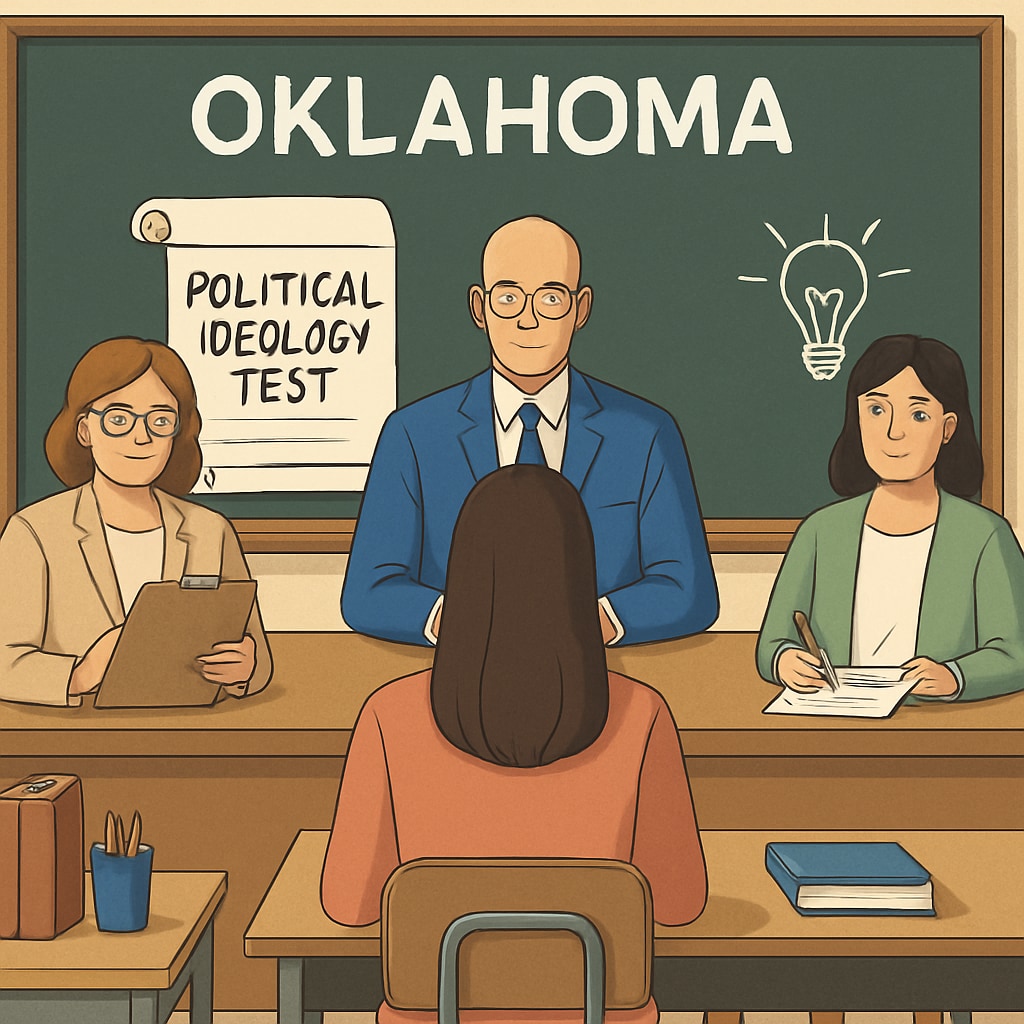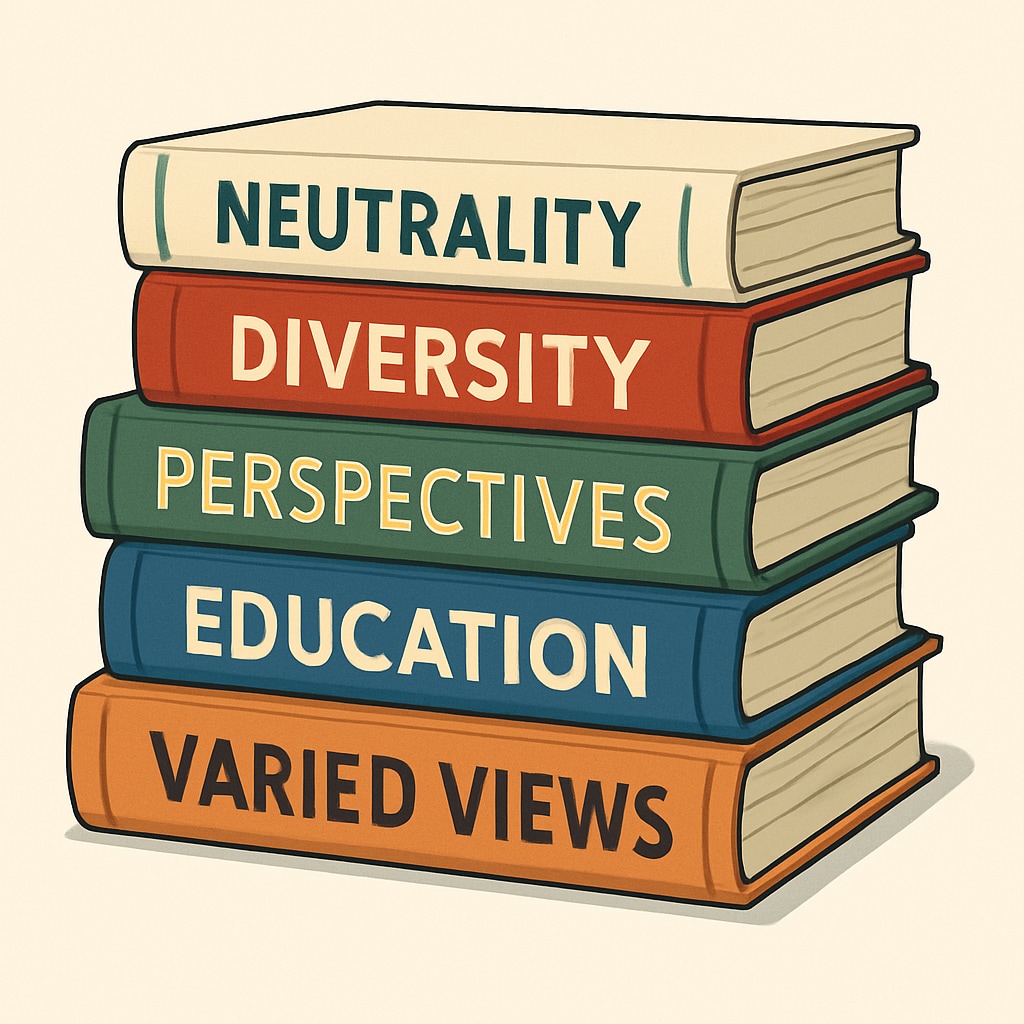The introduction of political ideology testing for out-of-state teacher applications in Oklahoma has ignited a significant debate surrounding education policy. This controversial measure has raised questions about the balance between maintaining ideological neutrality in education and the role of political influence in shaping the teaching workforce. As educators, policymakers, and the public weigh in, the policy’s broader implications on the integrity of education systems are under the spotlight.
Understanding Oklahoma’s Political Ideology Testing Policy
Oklahoma’s policy requires out-of-state teacher applicants to undergo an assessment of their political and ideological beliefs. Proponents argue that the measure ensures educators align with state values, particularly regarding sensitive topics like history, social studies, and civic education. However, critics view this step as a potential infringement on personal freedoms and an unwarranted politicization of the hiring process.

While the state has yet to release the full details of the testing process, initial reports suggest that applicants may be asked about their views on controversial topics such as race, gender, and historical events. Such questions have raised concerns about the fairness and objectivity of the process. For instance, how would the state define “acceptable” responses, and who decides these criteria?
Potential Impacts on Education and Teacher Recruitment
The policy has far-reaching implications for both educators and the education system as a whole. Firstly, it risks deterring qualified teachers from applying in Oklahoma, especially those who may feel their personal beliefs could disqualify them. At a time when teacher shortages are a national concern, adding ideological criteria might exacerbate recruitment challenges.
Secondly, the policy raises questions about whether education can remain a politically neutral space. Schools play a crucial role in fostering critical thinking and exposing students to diverse perspectives. If teachers are hired based on ideological alignment rather than professional qualifications, it could limit the range of viewpoints presented in classrooms.
For example, a history teacher required to conform to a specific political narrative may inadvertently restrict discussions on controversial yet critical historical events. As a result, students might receive a less comprehensive education, undermining their ability to engage with complex societal issues.

Debating the Boundaries of Political Influence in Education
Oklahoma’s policy brings to light a broader debate about the role of politics in education. While it is reasonable for states to establish guidelines that align with their educational goals, there is a fine line between setting standards and imposing ideological conformity. According to Britannica, academic freedom is a cornerstone of education, protecting educators’ rights to teach and students’ rights to learn without undue interference.
Critics argue that policies like Oklahoma’s could undermine this principle by prioritizing political alignment over educational expertise. In addition, such measures risk creating a chilling effect, where educators self-censor to avoid potential repercussions. This could have long-term consequences for both teacher morale and student learning outcomes.
Striking a Balance: Ensuring Integrity in Education
To address these concerns, policymakers must carefully consider the implications of intertwining political ideology with education. Transparency and accountability should be central to any hiring policy. For example, clear guidelines on what constitutes ideological alignment and how it will be assessed can help mitigate fears of bias. Furthermore, independent oversight could ensure that the testing process remains fair and objective.
In addition, fostering open dialogue between educators, policymakers, and the community can help build consensus on what values should guide the state’s education system. This collaborative approach may offer a more balanced path forward, preserving both the integrity of education and the state’s cultural values.
As the debate continues, the case of Oklahoma serves as a cautionary tale for other states considering similar measures. It highlights the importance of safeguarding education as a space for diverse ideas and critical thinking, free from undue political influence.
Readability guidance: This article uses concise paragraphs and clear subheadings to enhance readability. Key points are summarized in lists where applicable, and the use of authoritative sources like Wikipedia adds depth to the analysis. Transition words such as “however,” “as a result,” and “in addition” ensure a smooth flow of ideas.


